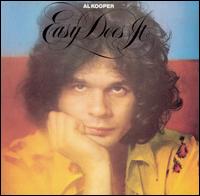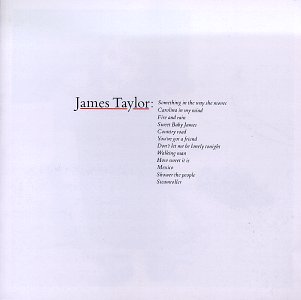
Greatest Hits is the first greatest hits album by American singer-songwriter James Taylor, released in November 1976 by Warner Bros. records. It remains Taylor's best-selling album, with over 11 million units being sold in the United States, making it among the best-selling albums of the 1970's.
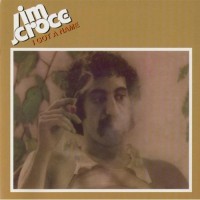
I Got a Name is the fifth and final studio album and first posthumous release by American singer-songwriter, Jim Croce, released on December 1, 1973. It features the ballad "I'll Have to Say I Love You in a Song", which reached number 9 in the US singles chart, and the ballad "Salon and Saloon", the last song Croce recorded in his lifetime. The song, which is noted for its sparse piano-only vocal backing, was written by his guitarist and friend Maury Muehleisen and was included on the album as a gift to the writer.

Playback is a box set compilation by Tom Petty and the Heartbreakers, released in 1995. It contains popular album tracks, B-sides, previously unreleased outtakes, and early songs by Petty's previous band Mudcrutch.
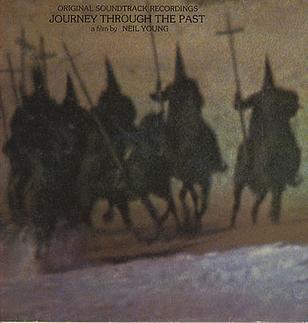
Journey Through the Past is a double LP soundtrack album from the film of the same name by Canadian / American musician Neil Young, released in November 1972 on Reprise Records, catalogue number 2XS 6480. It peaked at #45 on the Billboard 200. Its initial release was on vinyl, cassette tape, reel-to-reel tape, and 8-track tape cartridge. Although its follow-up Time Fades Away was finally released on CD in August 2017, Journey Through the Past remains the only 1970s Neil Young album yet to see an official CD reissue.

Al's Big Deal – Unclaimed Freight is a compilation album by American musician Al Kooper. It was released as a double-LP in 1975.

I Stand Alone is the debut album by the American singer-songwriter Al Kooper, issued in 1969 on Columbia Records. It was recorded after his collaboration with Michael Bloomfield and Stephen Stills on the 1968 album Super Session.

You Never Know Who Your Friends Are is the second solo album by American multi-instrumentalist Al Kooper, issued in 1969 on Columbia Records.

Kooper Session is the second-in-line of the Super Session albums featuring singer-songwriter Al Kooper. Joining Kooper in the guitar slot is 15-year-old phenomenon Shuggie Otis, son of rhythm and blues pioneer Johnny Otis.

Naked Songs is the sixth album by American singer-songwriter Al Kooper for Columbia Records, released in 1973. Two singles were released in the fall of 1972, preceding the album.

A Possible Projection of the Future / Childhood's End is American musician Al Kooper's fifth album, recorded for and released by Columbia Records in 1972.

New York City (You're a Woman) is the fourth album by American singer-songwriter Al Kooper for Columbia Records, recorded and released in 1971.

Flyer was the eleventh studio album released by singer-songwriter Nanci Griffith. Released in 1994, it contained 15 tracks, mostly of original material. It was nominated for the Grammy Award for Best Contemporary Folk Album at the 37th Annual Grammy Awards. The album had contributions from Peter Buck, Mark Knopfler, Emmylou Harris, Larry Mullen Jr., Adam Clayton, Adam Duritz, the Chieftains and the Indigo Girls.

Songbird: Rare Tracks & Forgotten Gems is a 2007 box set of songs personally selected by Emmylou Harris: "I've selected not greatest hits, but personal favorites: that, with a few exceptions-have never appeared on any other compilations, but were important gems in the string of pearls that each album strives to become. Also included are special collaborations, unreleased live and demo tracks, as well as contributions to tribute projects, which I may now gather into this fold.”

All American Boy is the debut solo studio album by American rock musician Rick Derringer, released in October 1973 by Blue Sky Records. "Joy Ride" and "Time Warp" are instrumentals.
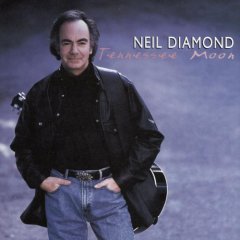
Tennessee Moon is the twenty-third studio album by Neil Diamond. Released in February 1996, it is the product of a collaboration with various country music songwriters and performers. A companion television special entitled Under a Tennessee Moon was aired on ABC. The album was certified gold by the RIAA.

Southern Nights is an album by American singer and guitarist Glen Campbell, released in 1977 by Capitol Records. The album peaked at number one on the Billboard Top Country Albums chart, and one of the singles from the album, "Southern Nights", also reached the number one spot on both the Billboard Hot 100 and Hot Country Songs charts.

The Way Back Home is the second studio album by American country music artist Vince Gill. It was released in 1987 by RCA Nashville and it produced four chart singles on the Billboard country charts. In order of release, these were "Cinderella", "Let's Do Something, "Everybody's Sweetheart" and "The Radio". After the final single, Gill left RCA's roster in favor of MCA Nashville, where in 1989 he released his fourth album, When I Call Your Name.

Act Like Nothing's Wrong is the seventh solo studio album by the American singer-songwriter Al Kooper, recorded and released in 1976.
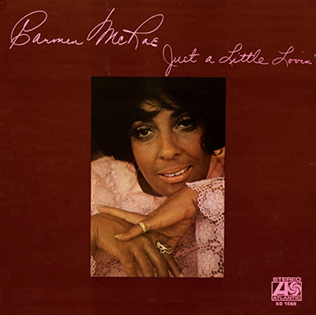
Just a Little Lovin' is a 1970 studio album by Carmen McRae directed and produced by Arif Mardin. The recording in a studio of Atlantic Records in Miami was set up with a horn section, an occasional string section and The Sweet Inspirations as backing vocals on some tracks. The studio's own Dixie Flyers, a rhythm section founded by Sammy Creason, provided the contemporary electrified sound for a repertoire that derived mainly from only recently written pop songs, three alone by the Beatles, two by the Muscle Shoal crew like "Breakfast in Bed", written in 1968 for Dusty Springfield, and a Laura Nyro original. The electrified orchestral sound is advanced twice, on "Something" with the use of a cimbalom, and with a Mellotron on "What'cha Gonna Do" that harmonizes with the strings. Slightly out of the pop vein are a straightforwardly played blues shuffle, "I Love the Life I Live" by Willie Dixon, and "Didn't We", an intimate duet with guitarist Al Gafa. There were several singles issued before and alongside the album's release, although the songs chosen for the most part didn't make it on the final album. They were reissued in 1991 as additional tracks on a Japanese digital re-release. "I Love You More Than You'll Ever Know" and "Just a Dream" were recorded already in September 1969 and Mardin had not thought of a horn section yet, instead the strings are emphasized.

Stone Alone is the second solo album by the Rolling Stones' bass guitarist Bill Wyman. It was released in 1976 by Rolling Stones Records. The album reached number 166 on the Billboard 200.
